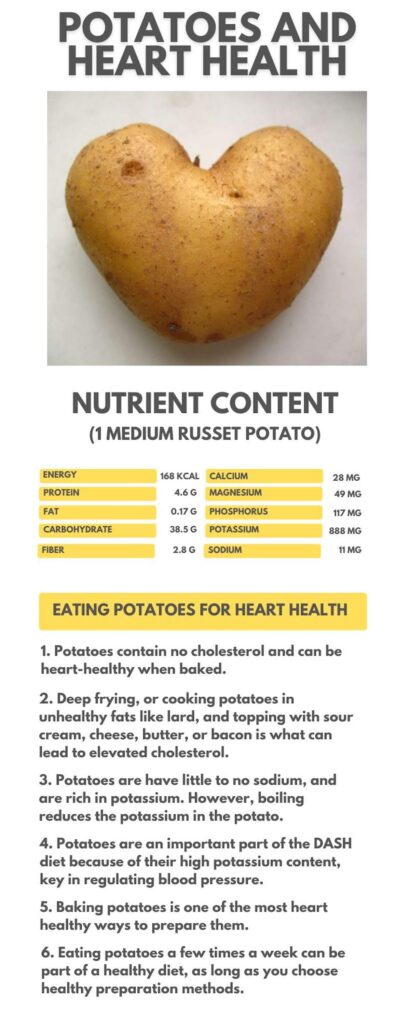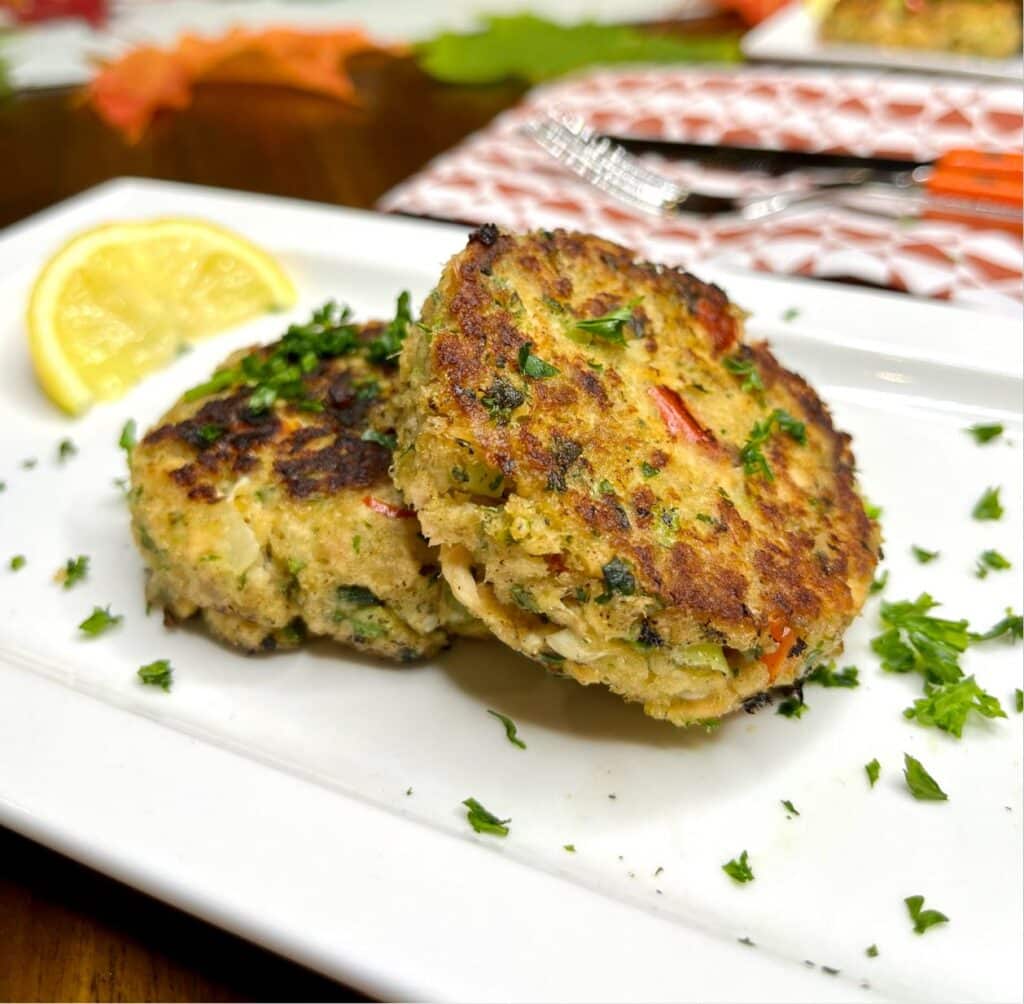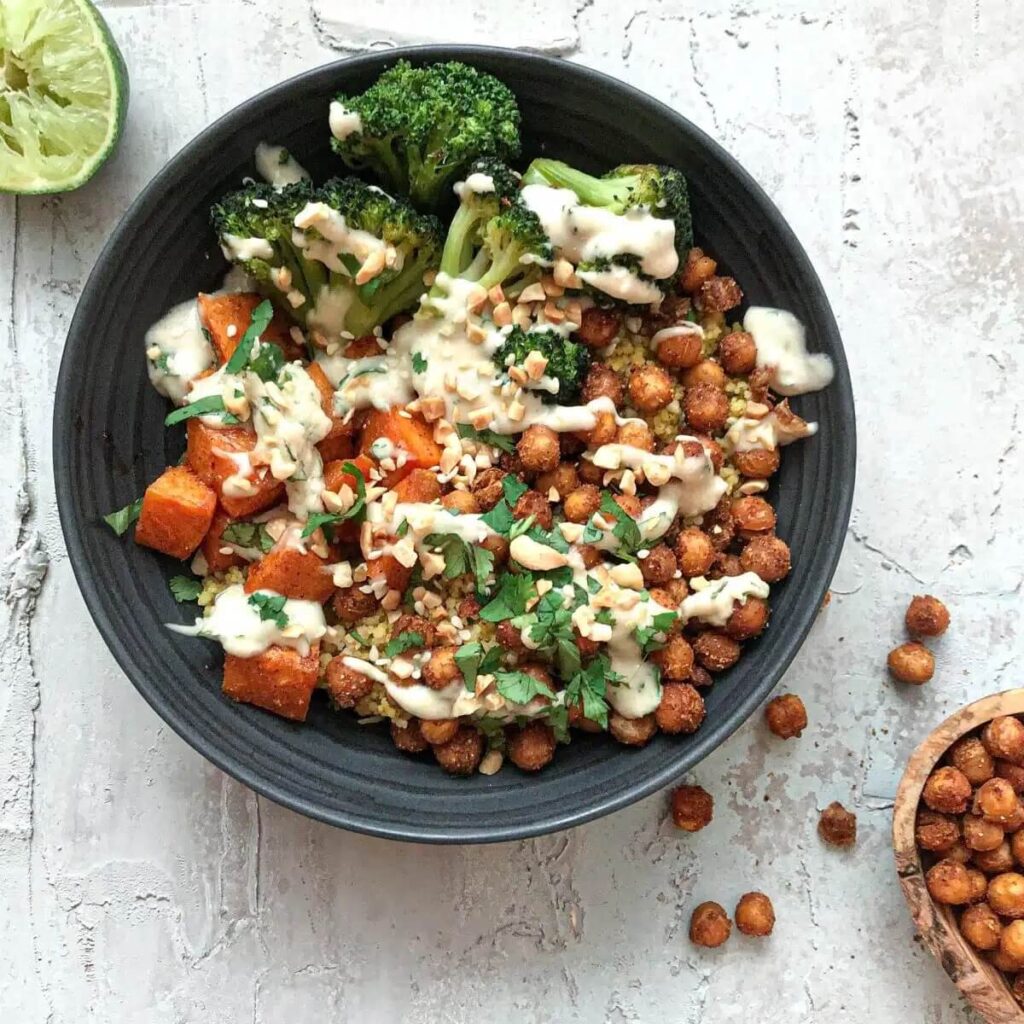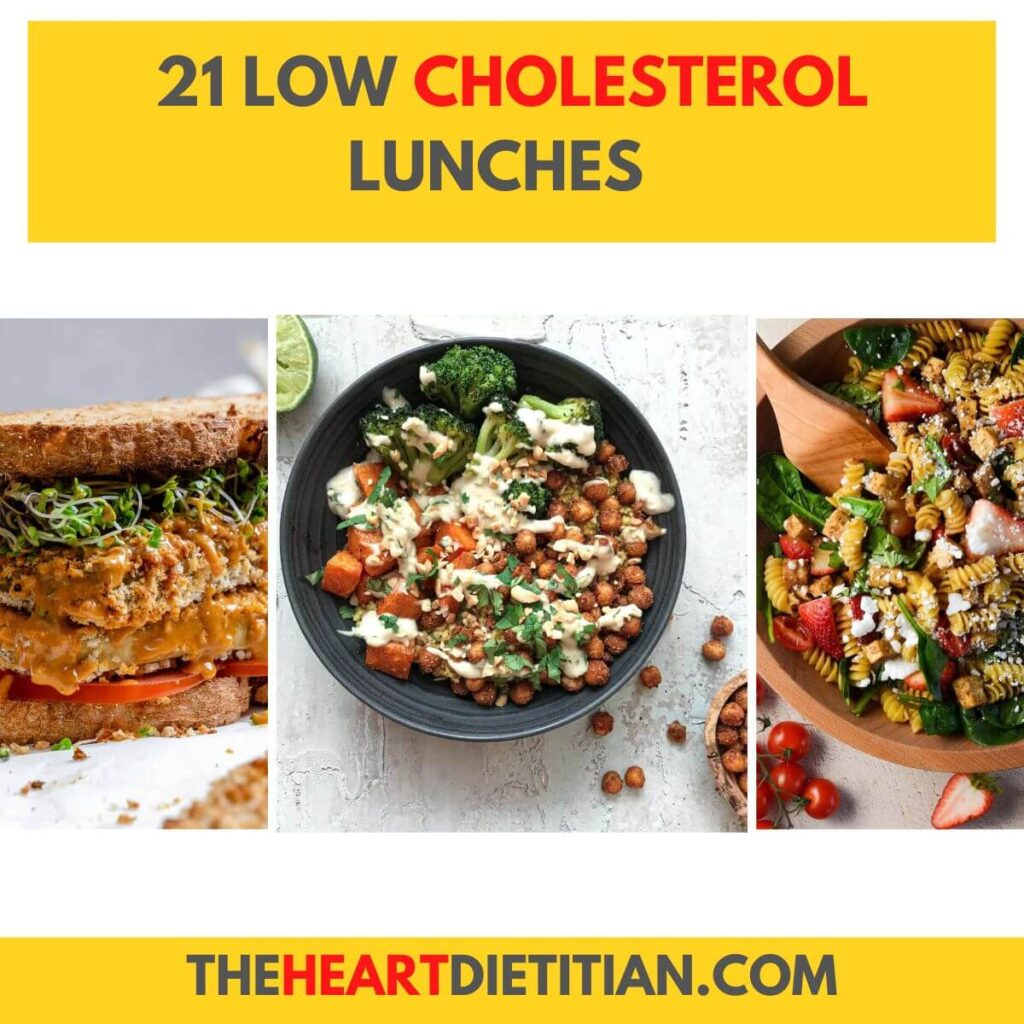This article goes into detail about potatoes and cholesterol content, and answers questions like is there cholesterol in potatoes?
The short answer is – potatoes can be part of heart-healthy dietary patterns.
Even though potatoes might not be the first thing that comes to mind for heart health, since they are often associated with cholesterol and weight gain, when prepared and consumed in the right way, they can actually be a nutritious and heart-friendly addition to your diet.
Top Takeaways
- Potatoes contain no cholesterol and can be heart-healthy when prepared correctly.
- Unhealthy toppings and cooking methods like deep-frying turn potatoes into unhealthy choices.
- For heart health, bake potatoes and use toppings like salsa, vegetables, and olive oil instead of high-fat dairy and meats.
Pin It For Later
Cholesterol And Heart Disease
Cholesterol is a waxy substance that is required for the body’s normal functioning (1). It exists in two forms, including low-density lipoprotein (LDL) cholesterol and high-density lipoprotein (HDL) cholesterol.
LDL cholesterol is often referred to as “bad” cholesterol, as high levels can lead to plaque buildup in the arteries and may lead to stent placements. Alternatively, HDL cholesterol is often referred to as “good” cholesterol, as it helps in removing excess cholesterol from the bloodstream.
Dietary choices have a profound impact on overall cholesterol levels. For instance, one factor that can influence your cholesterol profile is the intake of saturated and trans fats.
Diets high in saturated and trans fats can increase LDL cholesterol and decrease HDL cholesterol in the body (2,3). These fats are often found in red meat, full-fat dairy products, and many processed foods.

Nutrition Of Potatoes
Different potato preparations vary in their nutritional values. This is due to the cooking method, ingredients, and type of potato used. Below is a general overview of various potato dishes and their nutritional contents.
Potatoes And Fat
Potatoes on their own contain relatively no fat, however, this changes when ingredients such as oil and butter are added in the cooking process. While white potatoes and sweet potatoes have the lowest fat content, fried preparations such as fries and chips have the highest.
Potatoes And Cholesterol
The good news is there is no cholesterol in potatoes! Dietary cholesterol is not present in plant foods, and because potatoes are plants they naturally have no cholesterol.
That being said, potato dishes with added animal products such as sour cream and butter, however, contribute to increased saturated fats to the dish, and too much saturated fat can increase out LDL cholesterol levels.
Potatoes And Sodium
Potatoes naturally contain almost no sodium. Sodium instead comes from added ingredients such as table salt or cheeses. Scalloped potatoes and French fries are a couple potato dishes that are particularly high in sodium.
Potatoes And Carbohydrates
Potatoes are known to contain both soluble fiber and insoluble fiber in their natural form. The quantity of fiber, however, can vary slightly by type of potato and cooking method.
For instance, sweet potatoes contain slightly more fiber than white potatoes. Additionally, leaving the skin on can also contribute to an increased fiber content.
Potatoes also contain a type of carbohydrate known as resistant starch. This starch resists digestion, acting similar to fiber in the body.
Resistant starch tends to be higher in white potatoes than sweet potatoes and is particularly higher in potatoes that have been cooked then cooled prior to consumption.
These benefits make potatoes a good part of the DASH diet, Mediterranean Diet, Portfolio Diet, 7 day low cholesterol diet plan, and PAD diet.
Potatoes And Potassium
Potatoes are a significant source of potassium, however, the quantity can vary by method of preparation. This is because potassium is a water-soluble mineral, meaning it can leach out of the potato and into the surrounding water when cooked.
Due to this process, boiled potatoes may contain fewer amounts of potassium compared to roasted potatoes. One way to combat this issue is leaving the skin on when cooking potatoes.
Moreover, additional ingredients such as dairy products also contribute to the overall potassium content within a potato dish.
Potatoes And Other Nutrients
As with potassium, potatoes are also a reliable source of vitamin C and B vitamins. It is important to note, however, that these vitamins are also water-soluble and sensitive to heat. This means that they are more likely to break down during the cooking process.
Therefore, white potatoes and sweet potatoes will have a higher vitamin content than French fries and potato chips due to the high temperature of the oil required in the frying process.
Some potato varieties are also known as anti-inflammatory as they contain antioxidants. This is more common in potatoes with yellow, orange, and purple flesh. For instance, sweet potatoes will contain more antioxidants than white potatoes.
Antioxidants are also known to be highly sensitive to heat, therefore the availability within potatoes will vary by cooking method.
Summary
Check out this awesome table below that details the nutrition in different types of potatoes. For example, is there cholesterol in a baked potato? Or does mashed potatoes contain cholesterol?
| Nutrient | White Potato | Sweet Potato | Mashed Potato | Baked Potato With Sour Cream | Baked Potato With Butter | French Fries | Potato Chips | Roasted Potato With Olive Oil | Scalloped Potatoes | Boiled Potatoes |
| Fat | No | No | Yes | Yes | Yes | Yes | Yes | Yes | Yes | No |
| Low Cholesterol | Yes | Yes | No | No | No | Yes | Yes | Yes | No | Yes |
| Sodium | No | No | Yes | Yes | Yes | Yes | Yes | No | Yes | No |
| High Fiber | Yes | Yes | No | Yes | Yes | No | No | Yes | No | Yes |
| High Soluble Fiber | No | Yes | No | No | No | No | No | No | No | No |
| Resistant Starch | Yes | No | No | No | No | No | No | No | No | No |
| Potassium | Yes | Yes | Yes | Yes | Yes | Yes | Yes | Yes | Yes | No |
| Vitamin C | Yes | Yes | Yes | Yes | Yes | No | No | Yes | Yes | Yes |
| B Vitamins | Yes | Yes | Yes | Yes | Yes | No | No | Yes | Yes | Yes |
| Antioxidants | Yes | Yes | Yes | Yes | Yes | No | No | Yes | Yes | Yes |
Potato Nutrition And Heart Health
Blood Pressure
High blood pressure is known to be a precursor to heart disease, making its management integral in supporting overall heart health. Potatoes are an important part of the DASH diet because of their substantial potassium content.
This essential mineral is key in regulating blood pressure by counterbalancing the effects of sodium, promoting better fluid balance, and relaxing blood vessel walls within the body (4).
Therefore, preparing and consuming potatoes in a way that maximizes potassium intake can not only introduce nutrients into your diet, but it can also contribute to a lower blood pressure.
Cholesterol
Is there cholesterol in potatoes?
The answer is no!
Not only do potatoes naturally contain no cholesterol, but their high fiber content also plays a vital role in lowering LDL cholesterol within the body (5).
Summary: Potatoes And Cholesterol: Set The Record Straight
Contrary to popular beliefs, potatoes, when prepared and consumed mindfully, can be a valuable addition to a heart-healthy diet.
Due to the absence of a liver in plants, plant-based foods such as potatoes do not contain cholesterol. In fact, the nutritional profile of potatoes such as the fat, sodium, carbohydrate, fiber, potassium, vitamins, and antioxidants can actually support a low cholesterol, heart-healthy diet.
However, this is dependent on the type of potato, additional ingredients, and cooking method used.
So, what makes potatoes unhealthy?
One of the main culprits for turning potatoes into an unhealthy choice is the way they are often prepared and served.
Accompanying potatoes with toppings like sour cream, cream, whole milk, cream cheese, cheese, butter, or bacon can significantly increase their saturated fat, salt, and cholesterol content. This can then lead to elevated cholesterol levels and high blood pressure, increasing the risk of heart disease.
Furthermore, deep-frying and cooking potatoes in unhealthy fats such as lard or ghee can also affect their healthiness. This is common practice for foods such as French fries and potato chips, and it results in these dishes being loaded with trans fats and excessive calories.
Unfortunately, in many parts of North America, potatoes are predominantly consumed in these ways. This greatly contributes to the concerns surrounding elevated cholesterol levels, high blood pressure, and heart disease within the population.
To enjoy the benefits of potatoes while minimizing the downsides, it’s crucial to choose healthier preparation methods and be mindful of toppings and accompaniments.

How To Eat Potatoes For Heart Health
Below are some tips on how to cook and enjoy potatoes in a way that supports overall heart health.
How To Cook
Baking potatoes is one of the most heart healthy ways to prepare them. This is because it preserves their nutritional value without the addition of unhealthy saturated and trans fats.
Toppings
Instead of opting for full-fat dairy and meat products to serve with your potatoes, try adding salsa, vegetables, herbs, or olive oil.
Salsa is a great option as it adds a zesty kick while limiting any excessive sodium or saturated fats.
Incorporating a variety of vegetables like broccoli, spinach, bell peppers, or asparagus is also a great option for added taste.
You can also try experimenting with herbs like rosemary, thyme, or basil to enhance the flavor of your potato creations without piling on unhealthy ingredients.
Lastly, replacing butter or cream with heart-healthy olive oil or olive oil substitutes can provide a rich, satisfying taste along with the various benefits of healthy fats.
Recipe Ideas
Potatoes can be prepared in a variety of ways that fit into a low cholesterol, heart-healthy diet. Some great recipes to explore include roasted herb potatoes, mashed potatoes with olive oil and garlic, and potato salads with vinaigrettes.
Roasted Herb Potatoes can be made by tossing potato chunks with olive oil and your favorite herbs, then roast them until they’re crispy and delicious. On the other hand, to create creamy mashed potatoes, substitute butter with olive oil and add garlic for flavor.
To make a potato salad, use a vinaigrette dressing. Along with this, feel free to add any chopped veggies and herbs for extra nutrition and taste!
If you choose a mayo based dressing, check out these articles on low sodium mayonnaise and best mayonnaise for high cholesterol.
Being mindful of portion sizes can play a significant role in maintaining a balanced and heart-healthy diet. And ensure that potatoes are served with other nutrient-dense foods to help support a heart-healthy diet.
Recipes
Frequently Asked Questions
Are Potatoes High In Cholesterol?
Potatoes are not high in cholesterol, in fact potatoes have no dietary cholesterol present.
Are Potatoes OK For High Cholesterol?
Potatoes are ok for high cholesterol when prepared and consumed in a healthy manner. Boiled or baked potatoes with minimal added saturated fats and paired with nutrient-dense foods can be a good choice.
Are Potatoes Bad For Cholesterol?
Potatoes are not bad for cholesterol. It’s often the way they are prepared (i.e. fried) and the toppings used (e.g., butter, cream, cheese) that can make them less healthy for cholesterol levels.
Does Eating Boiled Potatoes Affect My Cholesterol?
Boiled potatoes, when consumed without unhealthy toppings, can be a heart-healthy choice. They are low in cholesterol and provide beneficial nutrients such as fiber which may help manage cholesterol levels.
How Many Times A Week Can We Eat Potatoes And Still Be Healthy?
Eating potatoes a few times a week can be part of a healthy diet, as long as you choose healthy preparation methods and toppings, practice portion control, and maintain a balanced overall diet.
Can Potatoes Affect Triglycerides?
Potatoes are not known to significantly affect triglycerides. However, the way potatoes are prepared and consumed, such as frying or using high-fat toppings, can contribute to an increase in triglycerides.
Are Cooked Potatoes Good For Cholesterol?
Cooked potatoes, particularly when boiled or baked, can be part of a heart-healthy diet. Cooking methods and toppings significantly impact their effects on cholesterol.
Are Mashed Potatoes Good For Cholesterol?
Mashed potatoes can be a heart-healthy option when prepared with olive oil instead of butter or cream, and when portion sizes are controlled.
Are Potatoes Good For Your Heart?
Potatoes are good for your heart because they offer nutrients like potassium and fiber that can help maintain healthy blood pressure and cholesterol levels.
How Else To Lower Cholesterol?
- Choose lean proteins like poultry, fish, and beans/ legumes.
- Increase your intake of fibre-rich foods, including oats, beans, fruits, and vegetables.
- Replace saturated and trans fats with healthy fats like olive oil, avocados, and nuts.
- Choose low cholesterol foods when possible, and use low cholesterol cookbooks.
- Engage in physical activity.
- Quit smoking, as it can raise LDL cholesterol and lower HDL cholesterol.
- If you consume alcohol, do so in moderation as excessive alcohol intake can raise triglycerides and blood pressure.
- Take your medications as prescribed.
- Have regular check-ups with your healthcare provider to monitor your cholesterol levels and overall heart health.
Final Thoughts
When it comes to potatoes and cholesterol, potatoes can be part of a heart-healthy diet, it’s vital to be mindful of how they are prepared and served.
What is your favorite way to prepare potatoes for heart health?




